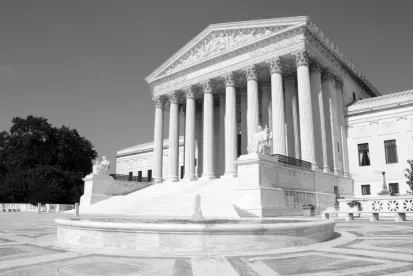On June 8, 2020, the U.S. Supreme Court denied the employer’s petition for certiorari in OTO, LLC v. Kho.
As background, in 2019, the California Supreme Court ruled in OTO that the arbitration agreement at issue was not enforceable because the agreement was both procedurally and substantively unconscionable. The procedural unconscionability finding generally focused on the manner in which the agreement was presented to the employee. Substantive unconscionability focused on, among other things, the wavier of the employee’s ability to bring Labor Code claims before the state Labor Commissioner in what are known as “Berman hearings.”
In February 2020, OTO petitioned the U.S. Supreme Court to review the California Supreme Court’s decision. In its petition, OTO argued that the California Supreme Court failed to apply California’s general test for substantive unconscionability. Instead, the California Supreme Court had applied an unconscionability-by-comparison approach, using an approach that effectively excludes wage claims because of the potential for those claims to be resolved in a Berman hearing. OTO also argued the California Supreme Court was a “serial offender” that has “repeatedly refused to apply the [FAA’s] equal-treatment principal that [the U.S. Supreme Court] has affirmed time and again.”
On June 8, 2020, the U.S. Supreme Court denied OTO’s petition for certiorari, which means the opinion by the California Supreme Court stands.




 />i
/>i

